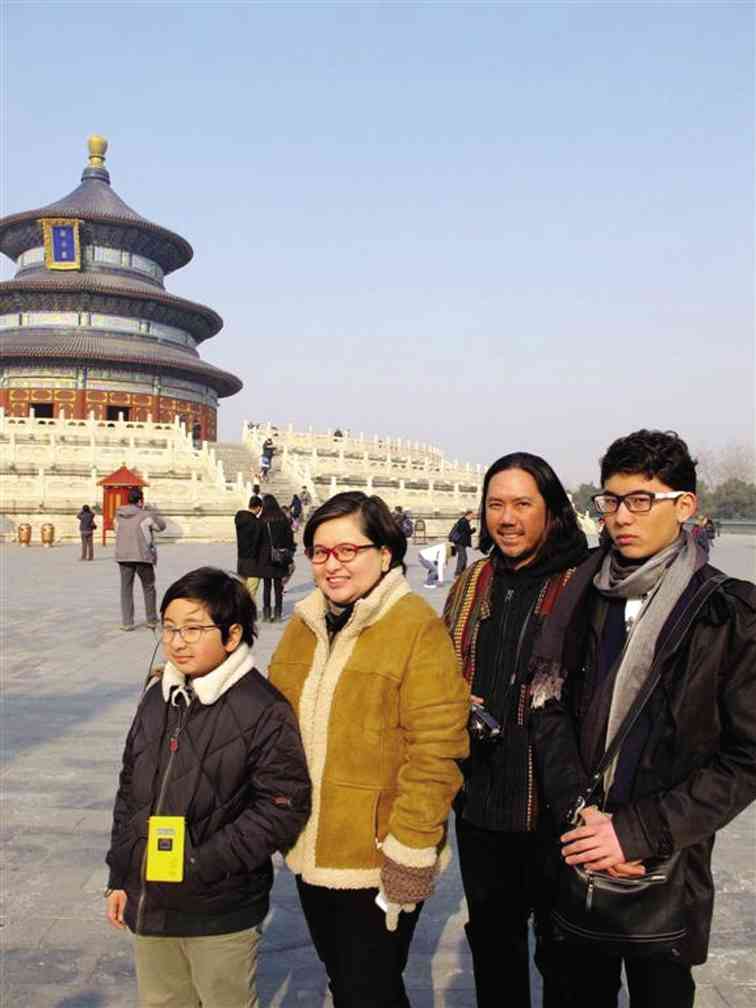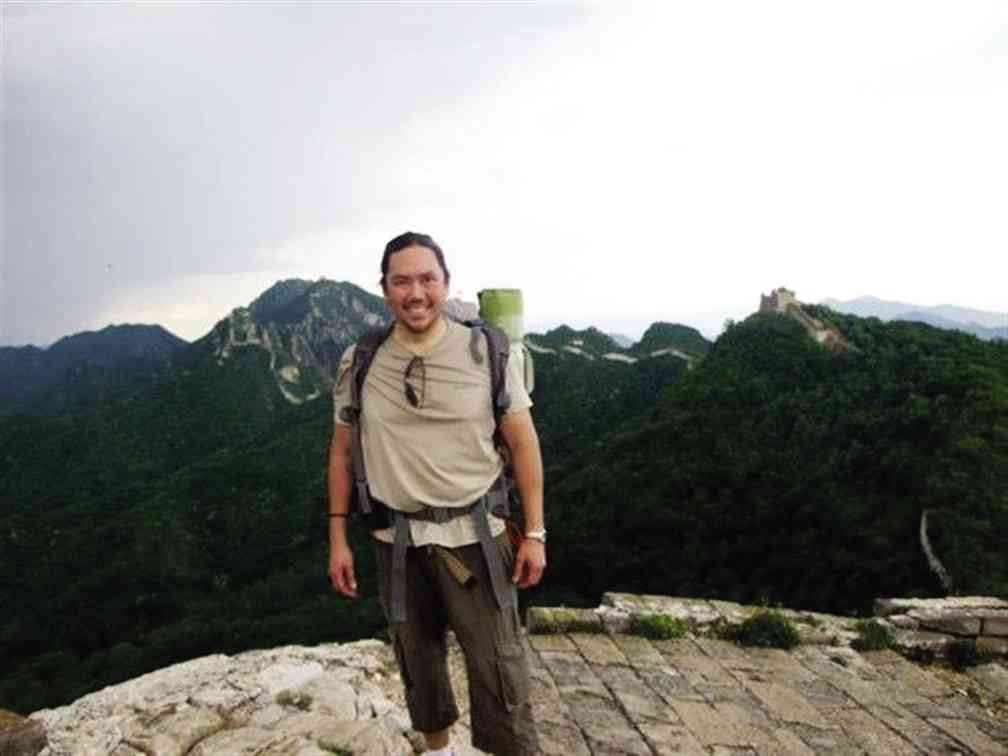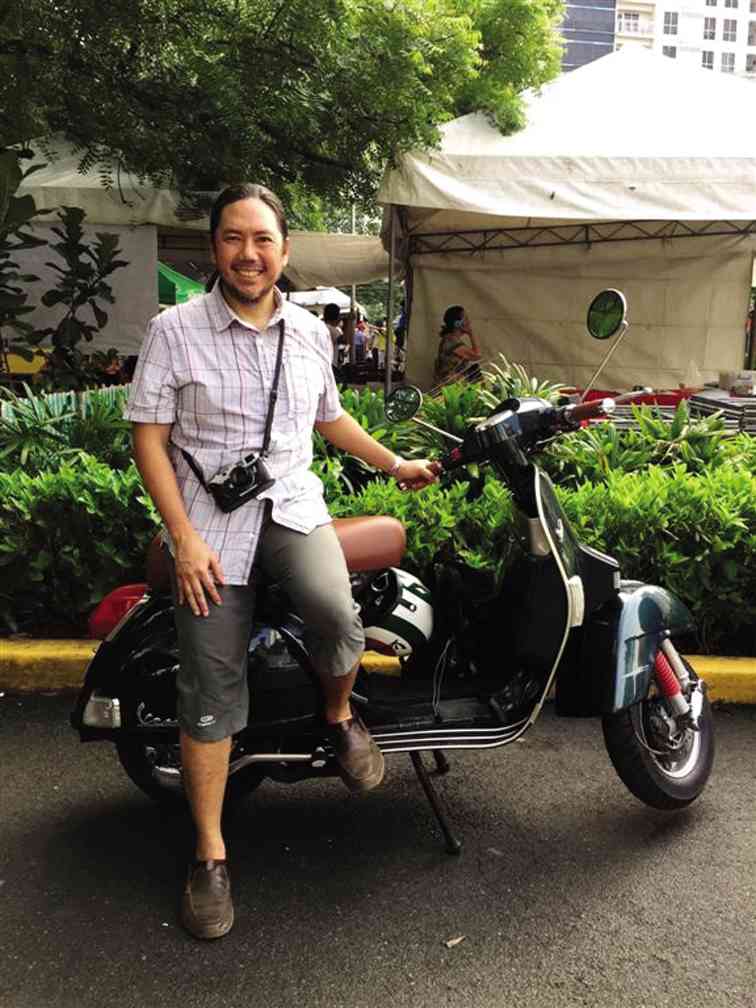An expat’s strategic, portable lifestyle
Paolo Mercado is the new senior vice president of communication and marketing services of Nestle Philippines Inc. He takes over Sandra Puno who retired recently.
Mercado has an advertising degree and a master’s degree in social psychology. He was away from the country for 11 years. He was based in Paris for four years, working for Publicis Worldwide as deputy worldwide account director for Nestle Business.
In 2008, he joined Nestle in their head office in Vevey, Switzerland, as global communication manager for the dairy strategic business unit.
In June 2011, he moved to Beijing as head of marketing and consumer manager for the dairy strategic business unit.
Below is a Q and A:
Q: What was your professional background before expatriation
and how was it helpful?
A: I was working in Publicis Philippines agency prior to my first expatriation in 2000. I was at that time one of the few strategic planning directors in the Philippines, as well as within the Publicis Asia-Pacific region.
I was a bit of a fish out of water in those days because strategic planning was still fairly new as it was a discipline that was neither account servicing nor creative.
As I had an academic background in social psychology, I focused most of my personal knowledge building on understanding consumer behavior.
Dr. Ned Roberto from the Asian Institute of Management was my mentor and I truly learned so much from him.
Eventually, I found myself working on the Nestle account within Publicis. I became heavily involved in the strategic planning for all the major brands with Publicis at that time. Then one day in late 1999, the global creative director of Publicis, Stephane Pincas, visited the Philippines and somehow I made a strong impression on him. When they restructured the global account team for Nestle the following year, they asked me to join the Paris team.
As with many things, it was about being in the right place at the right time. That being said, I am grateful I slaved through my postgraduate evening classes in Ateneo as the social psychology courses I took did prove to be very useful in Manila and abroad.
Q: What were your professional responsibilities in each of your
expat assignments?
In Paris, I was in charge of managing the global Nestle relationship for the dairy, nutrition and ice cream brands. The job had two key aspects:
First is that I was the global strategic planner for brands such as Nido, Bear Brand, Nesvita, Coffee-Mate, Nan, Nestle Ice Cream and also Powerbar which was still with Nestle at that time.
The second scope was as agency “firefighter.” Meaning, if a Publicis agency needed assistance with any of my assigned brands anywhere in the world, I would have to fly there to help them in developing the advertising strategies.
Thus the Publicis job had me traveling from Paris to Switzerland every week, and about two times per month to a Publicis office in different parts of the world. During that time I traveled to the US, Canada, Mexico, Brazil, Germany, UK, Spain, Portugal, Russia, Egypt, UAE, Thailand, Singapore, Malaysia, Japan, China and of course the Philippines. Yes, it was exhausting!
When I moved to Nestle, essentially they brought in-house the strategic planning role I was doing for them as an agency person. But now, I was “the client” as it were so if there were issues with the agency management I didn’t have to fix it for them. That said, I still had to travel quite a bit to help our own Nestle markets through some tough situations. One such assignment was helping out our China market when they were going through the melamine crisis that affected the whole milk industry there.
Both in China and in the Philippines, I am in charge of the functional leadership of the marketing discipline and provide shared services support to our business units. My scope of responsibility includes advertising management, creative services, media, digital marketing, consumer services, corporate communications, events, promotions and activation, marketing training, and the corporate nutrition health and wellness unit.
Q: In which way was each assignment different?
Both the Paris and Switzerland assignments were similar because I was responsible essentially for global brand communication management. The strategic skills and people skills needed were very similar. During those seven years (four in Paris, three in Vevey) I had to learn how to work with multicultural teams and lead international projects.
The key differences of course was that in the Paris role, I was the agency, and in Vevey I was the client. Also as with all ad agencies, the Publicis culture has a strong culture of “creative chaos,” whereas Nestle epitomizes Swiss efficiency and precision.
The China assignment was very similar to my current role, except for a few major differences. First, Nestle China isn’t one company but five different companies as it includes three joint venture companies (Totole in Shanghai, Yinlu in Xiamen, Hsu Fu Chi in Dongguan) as well as Wyeth Nutrition in Shanghai. Thus I had to travel frequently to these different companies for marketing projects. My scope of responsibility also covered Nestle Hong Kong and Nestle Taiwan so I had to travel there, too.
The second major difference is the scale and depth of Digital China. It may not be a Facebook, Google and Twitter world, but with over 700 million netizens, China has its own digital ecosystem with local companies such as Baidu for search, Tencent for Social, Youku for online video and of course Alibaba for e-commerce. Digital marketing is so critical in China that I had to rebalance our priorities from spending
6 percent of our media budget on digital in 2011 to 40+ percent in 2014-2015.
Q: Culturally, what challenges were common to all locations and what challenges were unique to each one?
This is a tricky question as I had to adjust to both the work and nonwork cultures in each place. Let me focus more on work culture.
Working in an ad agency in France, I had to adjust to what people call the Cartesian mindset. Philosopher René Descartes’ famous idea of cogito ergo sum (I think, therefore I am) has a profound influence on the French way of working. What this means is that in France, people spend hours (even days) discussing, debating and refining the principles and rationale behind a project before they do any actual work. Projects must be intellectually sound and well thought out before it is deemed worthy as a project to work on. This can be very frustrating for those of us who are used to the more pragmatic American style of getting to work on a project immediately and figuring things along the way. Not so for the French. The thinking must come first before the work.
The Swiss, on the other hand, has a Calvinist work ethic that is very pragmatic, hardworking, frugal and structured. Each is expected to have a job with well-defined roles and a person usually does that role very well. But if you ask someone to do a task that is not part of his job description, then good luck to you. The Swiss are also very collegial. Decisions are taken not by a lone authority figure, but by group consensus. Thus, every decision must be aligned with so many stakeholders before action is taken.
Finally, the Chinese are Confucian. Hierarchy and obedience to authority is critical. At the work place, all decisions, no matter how small, are delegated up. The most difficult thing for me was figuring out how to empower my team to take decisions. Some just won’t do it and still pass all decisions up. Others, on the other hand, go too far and lose their respect for you because you have delegated decision-making to them.
But as with everything, one just needs to understand and connect with the universal humanity underneath the cultural differences and somehow you will find a way to adjust.

FROM PILLAR TO POST With his family in the Temple of Heaven in Beijing, China. One of the countries Mercado and his family lived in is China.
Q: What are the key experiences and learnings that you have brought with you from each assignment?
Taking off from my previous answer, in France I learned to think through things more before asking people to work on my projects.
In Switzerland, I learned the importance of collaboration and consensus building.
In China, I learned how to act as a leader, or a da lao ban (a big leader) who needs to earn the respect of the team.
Q: What adjustments did you have to make in each location, professionally, personally, and as a family?
France was the toughest because it was our first expatriation. People think living and working in Paris is a dream assignment. Actually, it is very tough as you must learn to do everything on your own without the help of maids or drivers. Any assignment in Europe is the same.
Our eldest was not yet 3 when we moved and we did not know how to speak French then. My frequent travels made it even tougher for my wife who practically had to function as a single parent in a country where we did not know the language.
But soon enough, we adjusted both to the city and the language. That’s when we started to enjoy the nuances of Paris, the beauty of the countryside (especially Provence and the Sud Ouest) and the depth of the culture.
In Switzerland, as we were in the Swiss French side, the cultural adjustments were not as hard, but it still had its own quirks. We sent our kids to local schools as we wanted them to be French fluent. While we missed the museums and plays we often frequented in Paris, the Lavaux area of Switzerland around Lac Leman (Lake Geneva) is a great place because of the natural beauty of the place. The main challenge is that there are so many rules in Switzerland that you will get fined for the smallest infractions, including not segregating your garbage properly.
China was like France all over again as far as the language is concerned. However, like Manila, one has access to full-time help, a driver, and other trappings. Indeed our biggest challenge was to try to keep a simple lifestyle there, so we insisted on not having a full-time ayi (maid) and having our kids continue to wash their own dishes and help with laundry duty.
Q: How have your experiences as an expat helped you?
More than anything, my experience has taught me to be independent and autonomous. At work, this means knowing how to figure things out without always waiting for instructions or directives from above, of course I balance this with respect for authority and working with teams. I have grown to prefer not having maids (I still don’t have one here in Manila) and I still do a lot of my own housework.
Q: What impact has expatriation had on your family?
I like to think we are a very culturally open family. We have embraced and loved every country we stayed in. This is reflected most in our food choices, movie preferences and language skills. We love foie gras, confit de canard and truffle salt, always keeping them in stock at home. We crave for Swiss cheese fondue and raclette every winter, and of course Chinese food is just sublime in its variety. I stock up on red Chinese fermented tofu which I have with rice every now and then. We love watching French movies and Chinese movies (not quite Swiss movies though). For languages, we all speak French (though I’m very rusty), and both my wife and younger son are fluent in Mandarin.
The toughest part is when we need to leave a country we fall in love with, and we have fallen in love with all three! In fact, my family is still in Beijing as we prefer for my older son to finish his last year of high school there.
Another challenge of course is that while my kids have learned and embraced different cultures, it is tough to teach them our own culture as they have grown up most of their lives outside the Philippines.
Q: What qualities do you think are required of the Filipino as an expat?
Professional autonomy. If you are a self-starter who can figure things out on your own, then you’re on the right path. If you always need to ask directions from your boss, or advice from colleagues, or even depend on your secretary for the smallest of tasks, then you may not be ready.
A clear skill set or expertise. It is important to know what you are good at and nurture that skill with practice and self-study. Let’s face it, being an expat means you are doing a job that for whatever reason a local person cannot do. The performance expectations are very high and frankly amateurism and mediocrity won’t be tolerated for very long. You have to be good at something and strive to be the best at what you do.
A portable lifestyle. If you are serious about becoming an expat, try to live without maids and drivers if you have them. Also, try to have few material attachments as it is difficult to relocate from country to country with so many trappings.
Q:What advice would you share with other Filipinos who will be expats?
When you are abroad, you have a choice of either embracing the local culture, or staying only with the Filipino community. This is a tough choice because the Filipino communities offer great comfort and camaraderie. However, if you spend all your free time with only the Filipino community, you will not be able to maximize the cultural learning experience you have with your assignment. So my advice is to embrace the culture of the country you are in as much as possible because when the job is done, all you will take with you is the cultural learning.

